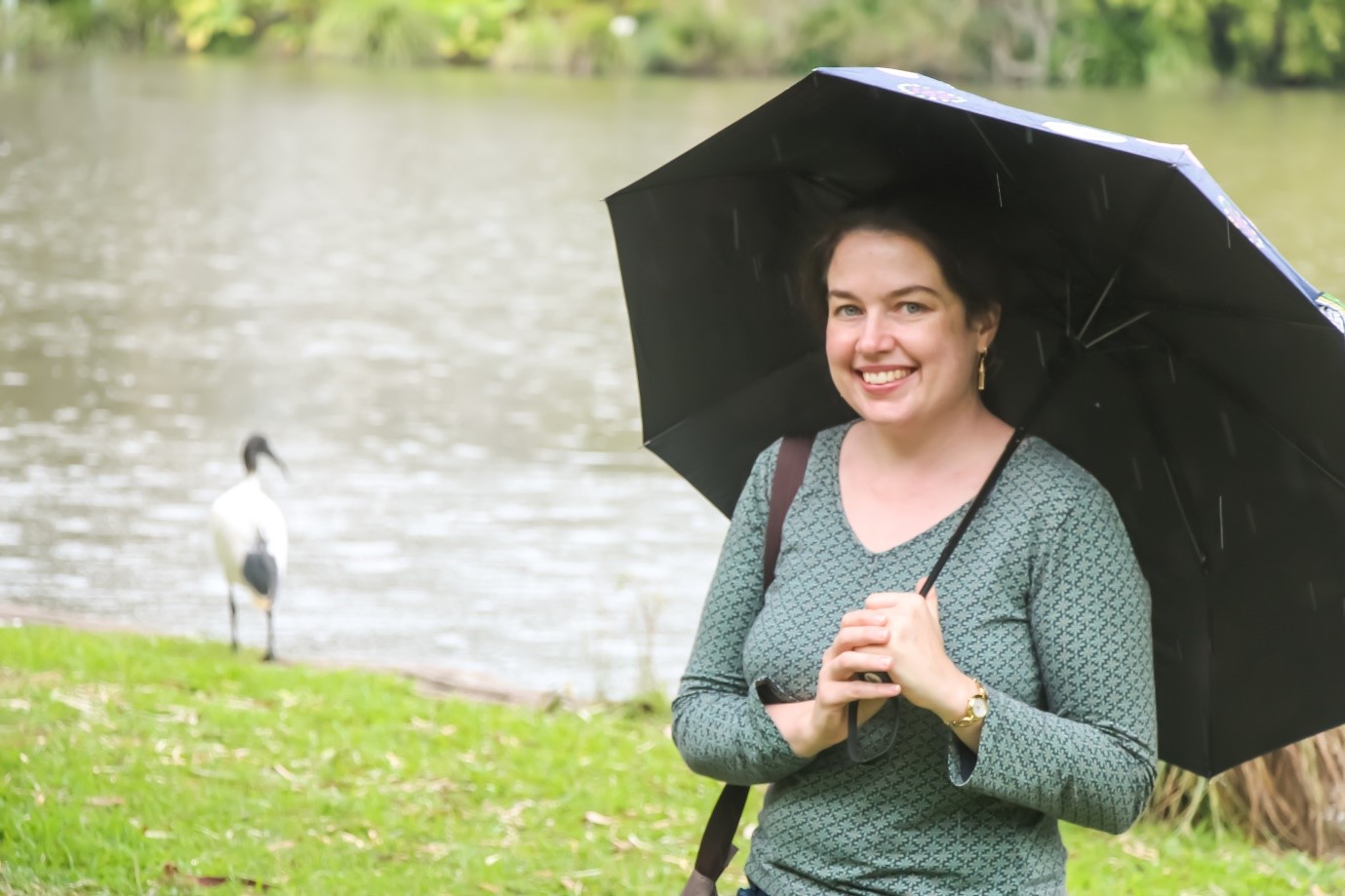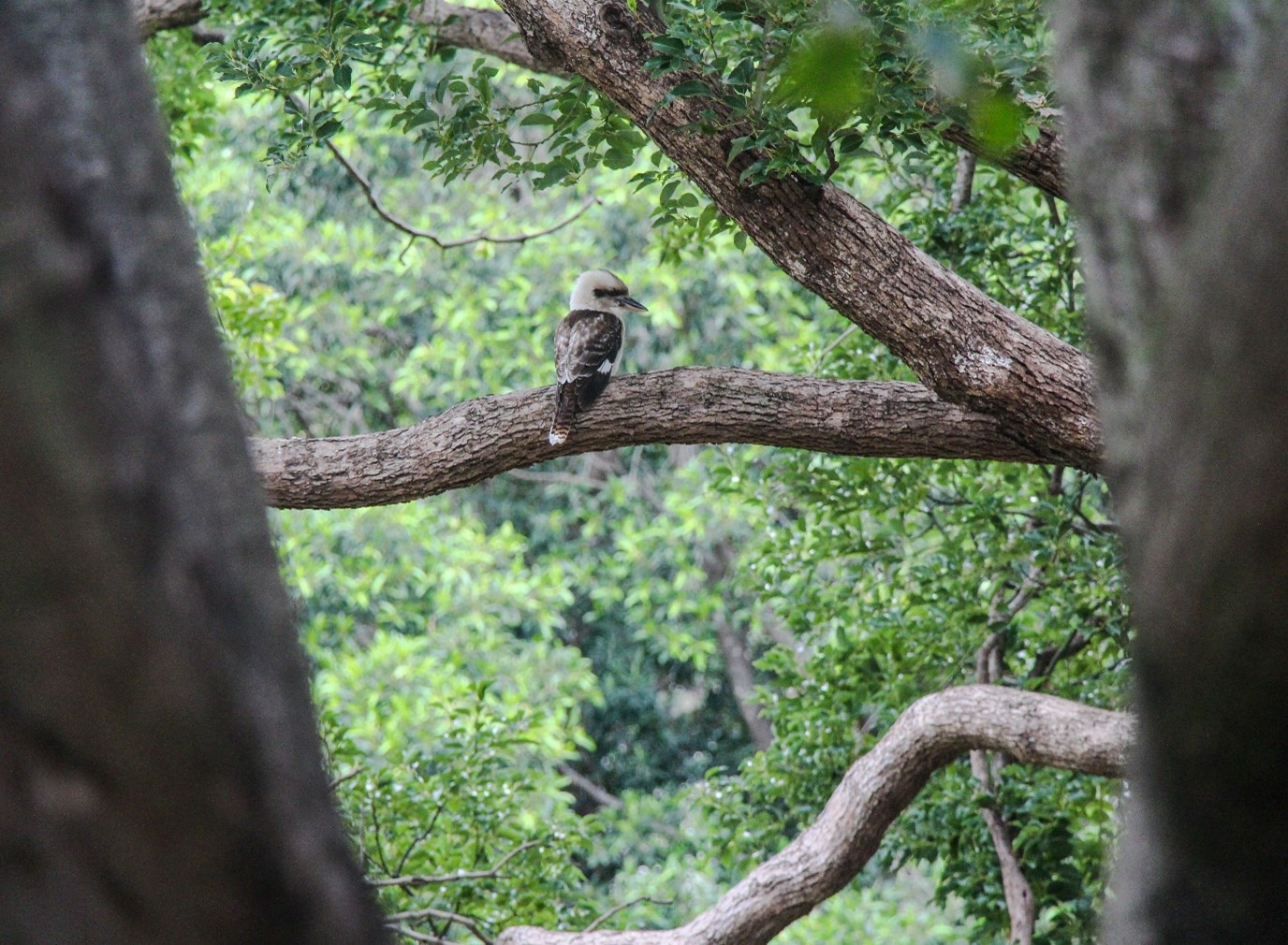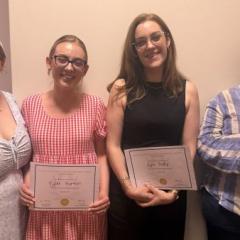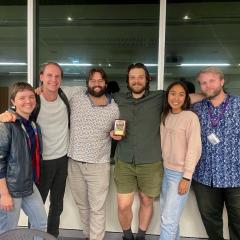I marked Latin assignments over the long weekend. I don’t like the beach: sand, sun, bluebottles, crowds. I suppose I’m not a very good ‘Australian’ in that way. That’s what someone said when I was doing a postdoc in Amsterdam. Then we started talking about snakes and sharks.
in that way. That’s what someone said when I was doing a postdoc in Amsterdam. Then we started talking about snakes and sharks.
I grew up in Sydney. I was always going to be a vet but I decided I’d find it too traumatising and changed to Arts/Law at the last minute. I picked Ancient History in first year because I loved it at school. It was hands down the most interesting and best taught of all the subjects I studied, so I did more and more. The lecturers made it challenging in the best way: they taught us to interrogate the evidence in depth and take a stand on scholarly debates. Law was intellectually interesting, but I never wanted to practice, and the big classes and 100% exams felt a bit like going through a machine.
Two things that have stuck with me since I was a kid are curiosity and slightly obsessive tendencies. I like collecting. I’m motivated by wanting to know, to understand – not facts and dates, but the connections between things and the way ancient Romans thought about things. Sometimes it takes a deadline or a conference presentation to pull it all together. I seem to have grown into the ‘all-nighter’ rather than out of it.
Creativity is another thing that’s stayed with me. It’s not good to be too creative when writing history, but playing with possibilities is fun and useful as well. I admire scholars who have incredible knowledge of their field and use it to do something different and daring. You don’t want to be too daring, but it’s also possible to be too cautious. Sometimes you need to be daring to do something important.
Partly that’s the nature of ancient history. It can be like playing detective, because so little of the evidence has survived. That can be a strength as well as a frustration. You can ask different sorts of questions compared with what might be possible in modern history, where one might be too close to events or have too much evidence to work with. But the period I work on is actually one of the richest, in terms of evidence. It’s also incredibly dramatic: the last years of the Roman republic, before an emperor came along, like a big autocratic cherry plonked on top of the constitutional cake.
I sometimes say that Roman history is like politics, but with dead people. There is so much plot and character. And while everyone died a long time ago, they faced many of the same problems that we face today. That’s something I’m often struck by in my current research project on ‘reform’ in the Roman republic: how did vested interests get in the way of beneficial change? how can reform happen through and despite political interests?
In teaching, I always try to make it fun. I like to be silly so my students aren’t afraid to be wrong. Tutorials are a great space for playing with ideas. Students need to be free to try on a ‘silly hat’ – it might not be the best fit with the evidence, but we can work together to find a better one. Most of the time there are no ‘right’ or ‘wrong’ answers. I try to teach students to work independently with material, to see what they can do with the evidence.
 I started at UQ in the middle of last year, when all teaching was online, so I was excited to teach my first three-dimensional students this semester. The campus is beautiful – the lakes and the wildlife. It helps that I like the bush turkeys, ibises, and curlews. I love travelling by ferry, too – such a change from crowded Sydney buses!
I started at UQ in the middle of last year, when all teaching was online, so I was excited to teach my first three-dimensional students this semester. The campus is beautiful – the lakes and the wildlife. It helps that I like the bush turkeys, ibises, and curlews. I love travelling by ferry, too – such a change from crowded Sydney buses!
To wind down I watch crime dramas to numb my mind into a false sense of sleep. My double bass is waiting for me Sydney. I’d like to find an orchestra to play in, but it’s such an impractical instrument to transport. I’m still settling into Brisbane and working on practical details, like replacing cardboard boxes with actual furniture. But I like getting out and exploring, enjoying the birds and the river.
Dr Kit Morrell joined the University of Queensland in July 2020 as Susan Blake Lecturer in Classics and Ancient History. She is also working on an ARC DECRA project, ‘Reforming the Roman Republic’.
Narrative, photos and interview by Ryan Williams



